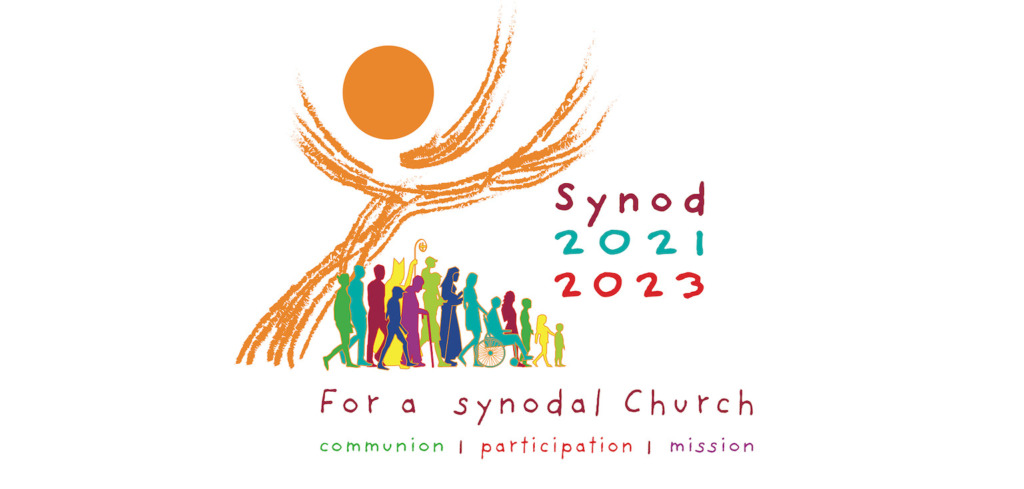Throughout the first five months of this year, more than 8,000 people from our diocese participated in the process of synodality — a process of encountering, listening and accompanying each other in order to provide input for next year’s World Synod of Bishops convened by Pope Francis.
Those who participated reflected the diversity of our diocese. The gatherings took place in individual parishes and parish clusters, organizations, and in various Catholic groups and diocesan councils. There was intentional outreach to the periphery — an area for outreach Pope Francis has emphasized.
These consultations focused upon three general themes or areas for discussion. The diocesan summary will be posted on our website, but I wanted to share with you a sample of the topics raised:
Communion
I was encouraged to learn that many felt their parishes were “warm and welcoming.” Those qualities are imperative if we hope to attract people. However, the attention we give to those who are most involved in our parishes and organizations needs to be more fully extended to those who aren’t, to those on the sidelines, i.e., the periphery.
Participants clearly expressed this as an ongoing concern, one that needed to be intentionally addressed lest more and more people find themselves distant rather than embraced by the Church.
Other points raised throughout the process were the importance of the sacraments in parishioners’ lives and gratitude for the pastoral ministry provided by the clergy. These are reminders that we have much to offer those who are seeking a relationship — or a closer relationship — with Jesus.
Discussion and dialogue
While some participants were skeptical about how their feedback would be used — and whether it would even matter – a recurring theme was a great appreciation for the synodal process. Many parishes expressed an intention to use the feedback immediately to improve parish life.
Given the influence and impact all forms of media, especially social media, have upon us, we understood why it was the focus of discussions. On the one hand, the Church must use media for evangelizing, for reaching beyond those in the pews and those who are not.
It can enhance our call to take the Good News to the world. This was evident during the pandemic when the faithful were able to watch livestreamed Masses, and parishes provided online resources so parishioners could remain connected.
On the other hand, there is genuine concern that dependence upon social media can lead to the loss of personal contact with each other, the communio about which Pope Francis often speaks and which is what we hope to strengthen through the synodal process.
Social media also has a negative impact upon our mission when it fosters divisiveness among the faithful, especially when ideological views do not reflect our witness to the Gospel. We must approach technology with the same stewardship we devote to other gifts from God.
Participation in mission
A concern among participants across the diocese was the need for improved catechesis and evangelization training. Like other Christians, Catholics, as a whole, do not feel equipped to share and defend our faith, nor do they have a basic grasp of it. This is understandable.
We are not unlike Jeremiah who, when the Lord appoints him a “prophet to the nations,” replies, “I know not how to speak; I am too young” (Jer 1:4-9).
Catechesis and evangelization go hand in hand. We cannot take the Word of God to others unless we ourselves understand and live it. What we have learned from the synodal process is that we must not only provide catechesis as a diocese, but we also must personally engage in it so that we are equipped to answer questions and to invite others to be part of our Church.
Synodality is not about one single person’s discernment or the action that one of us might take as an individual to cooperate with God’s will, distinct from the community. As important and as necessary as that personal discernment is for each of us, this is a process of communal discernment to respond as a community to the voice of the Spirit speaking in our hearts.
I am grateful to everyone who participated in the synodal process. Soon we will be providing a 10-page summary of those consultations. This will be combined with the summaries from the other U.S. dioceses and included in a report that will be sent to the Vatican’s synod preparation commission.
While this part of the process is complete, let us remember that synodality is not about standing still and waiting for God to make his will evident. It is about an active effort of the entire community to pray, to listen and to discern God’s will for us in furthering the mission of the Church.

